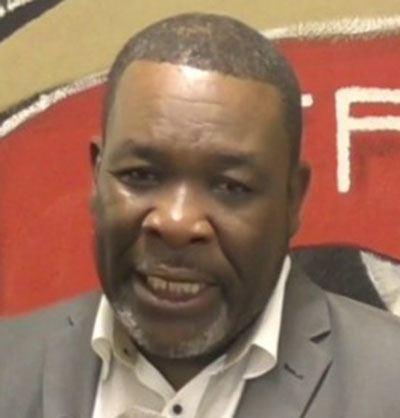PORT-OF-SPAIN, Trinidad, CMC – Football’s world governing body, FIFA, yesterday hailed the Trinidad and Tobago Court of Appeal decision to squash a recent High Court ruling against them, in the controversial case brought by the embattled country Football Association.
Earlier this month, Justice Carol Gobin ruled in favour of beleaguered TTFA president, William Wallace, contending that the normalisation committee installed last March by FIFA “was unwarranted and indefensible” and also “made in bad faith and for an improper and illegal motive”.
However, FIFA on Friday won their case in the Court of Appeal with Chief Justice Ivor Archie and Justice of Appeal Nolan Bereaux concluding that Wallace and his TTFA executive members had violated the local governing body’s constitution by challenging FIFA’s decision in the local courts instead of before the Court of Arbitration for Sport.
“FIFA welcomes the decision of the Trinidad and Tobago Court of Appeal, which ruled that the former leadership of the Trinidad and Tobago Football Association (TTFA) had acted unlawfully by appealing to a local court to contest the appointment of a normalisation committee for the TTFA,” a FIFA statement said.
“Among other relevant legal considerations, the Court of Appeal stressed that in accordance with the TTFA statutes and the FIFA statutes, the Court of Arbitration for Sports (CAS) is the proper forum to resolve such disputes.
“The ruling, which has been served to the parties yesterday (Friday), fully recognises the established global football governance structure, which relies on the CAS as the exclusive internationally recognised tribunal for the resolution of sports-related disputes.”
It continued: “A normalisation committee was installed in Trinidad and Tobago by a decision of the FIFA Council after it was established that the former leadership of the TTFA had engaged in various acts of serious mismanagement.
“The former leadership of TTFA lodged a claim before the local Courts in Trinidad and Tobago in order to contest the decision of the FIFA Council.
“Yesterday’s decision of the Court of Appeal overturns the first-instance decision of the local Court and concludes that, should the former leadership of TTFA wish to dispute the appointment of the normalisation committee it should appeal to CAS.”
The latest move allows FIFA to proceed with the normalisation committee headed by local businessman Robert Hadad, which was put in place last March because of what FIFA claimed were “extremely low overall financial management methods, combined with a massive debt”, leaving the TTFA “facing a very real risk of insolvency and illiquidity”.
Wallace, who had only replaced incumbent David John-Williams following elections last November, initially challenged the move before CAS but eventually resorted to the local courts after accusing CAS of “apparent institutional bias”.
However, against the backdrop of the High Court’s ruling, Bereaux wrote in his judgement that the TTFA was bound by its constitution to resolve all disputes with FIFA before CAS.
“The fact that such a provision is enshrined in the TTFA’s Constitution means that the TTFA and its executive are bound to comply. The result is that the filing of these proceedings was a breach of the TTFA’s Constitution,” he said.
“Having made its choice and having bound itself by its own Constitution to comply, it cannot now act outside of its provisions.”
In a further blow, the Court of Appeal also ordered the TTFA to pay FIFA’s legal costs.
Only recently, Wallace said if the Court of Appeal ruled against the FA, he would walk away without challenging the ruling before the Privy Council in London.
“If we lose this matter, that’s it for me. There is no more appealing,” he said.
“I [would] say, ‘Thank you very much’, and I walk away. There is nothing like that (appealing to the Privy Council). I have no intention of going beyond our court.”
In the interim, Trinidad and Tobago remains under a ban by FIFA, imposed last month for a “direct breach of article 59 of the FIFA Statutes, which expressly prohibits recourse to ordinary courts” in disputes by member associations.






